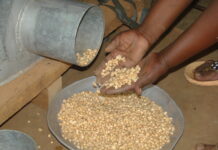 In this scenario a local newspaper reporter faces legal threats for a factual planning application report that lacked the applicant’s demanded “positive spin.”
In this scenario a local newspaper reporter faces legal threats for a factual planning application report that lacked the applicant’s demanded “positive spin.”
A local newspaper reporter has been assigned the task of monitoring licensing applications.
Their job, as set out by the news editor, is to check the weekly list of new applications submitted to the local council, contact the licensing department in order to find out the details, and then write a report.
Such stories usually cover premises wanting temporary permission to serve alcohol, existing premises wanting to stay open longer, or premises applying for a change of use.
The articles are meant to be simple, public information reports written to a formula.
They typically set out what has been applied for, include why the application has been made, and explain how anyone with concerns can register them.
While going through the latest licensing applications the reporter finds that a local pub has applied for a licensing extension which would allow it to remain open until the early hours of the morning.
The reporter copies the exact wording of the application and adds the text to the article. They then walk past the pub to take an exterior photograph.
The proprietor sees the reporter taking the photograph and asks them what they are doing. The reporter explains, and asks the proprietor to confirm the opening hours extension application.
The proprietor says it’s to meet ‘local demand’. He then admits that there will be some objections to the plans, but urges the reporter to add some “positive spin” to the report and offers to buy him a pint and lunch in the pub.
The reporter rejects the kind offer of refreshments – as is the newspaper’s policy – and returns to the office where he writes an article along the following lines (the name of the pub and location have been altered) …
The Jolly Boozer applies for a licence extension
The recently reopened Jolly Boozer on High Street, Sleepinghyde, wants to extend opening hours to 2am on Fridays and Saturdays and half midnight the rest of the week.
The pub’s proprietor says the change is aimed at meeting local demand.
Anyone concerned about the increase in opening hours has until Friday 21 March to make their representations.
The reporter then includes:
- the details of the application taken from the local authority’s official listing
- a quote from the proprietor about why they have applied for the extension
- and a paragraph about the public’s right to response.
The article is checked by the news editor, signed off by the editor, and published.
The next day, after the newspaper is published, the proprietor of the pub contacts the editor threatening legal action and claiming that the reporter had been involved in “coaxing negative representations” to the licensing office.
The proprietor demands an end to the “negative campaigning” against his business and calls for an article to be published in the newspaper to include the “positive spin” he had given the reporter about the extension application.
The editor calls the reporter into her office. The reporter denies any coaxing or campaigning, and explains that they were simply following normal procedure using a format used by the newspaper for all planning applications.
The editor agrees and calls the proprietor back explaining that she is satisfied that the article if fair, accurate, and in line with normal procedure.
The proprietor is not happy and accuses the reporter of being involved in a personal crusade to attack the business and says the matter has now been passed on to the company’s lawyers.
What should the editor and reporter do?
Should they:
- Publish a new story including “positive spin’ in line with the proprietor request while leaving out the part which explains how people can make ‘representations’ against the pub’s licensing extension application.
- Take advice from the news organisation’s lawyers.
- Stand firm, refuse to be bullied, and reject the demand for a follow-up article.
Suggested answer
A mixture of options 2 & 3.
In any situation where you are threatened with legal action you should first talk to your line-manager. You may also want to talk to the news organisation’s lawyers just to be sure. However, you will probably find that their advice is to refuse to be bullied.
In the case above the reporter has done nothing wrong. Their article is a straight piece of public information reporting. It follows a format used by the newspaper for many years. Those living close to pub need to know what the pub is planning. They deserve the chance to make representations if they are unhappy. It is part of the role of a local news organisation to share such information.
There will often be those who try to limit media freedom for their own ends by making legal threats. Their hope is that the journalist will become frightened and comply with their demands. But you must never be influenced by demands for “positive spin” or by false accusations of ‘coaxing’ or ‘campaigning’.
Always refer up and, if legal action is threatened you should seek advice from your news organisation’s lawyers.
Summing up
A local newspaper reporter, following standard procedure, wrote a factual article about a pub’s application for a licensing extension, including details of the application, the proprietor’s reasoning, and how the public could register concerns. Following publication, the proprietor threatened legal action, accusing the reporter of negative campaigning and demanding a “positive spin” article. The editor, after confirming the reporter followed established journalistic practices, should stand firm against the proprietor’s demands, refusing to be bullied or publish biased content, while also consulting the news organisation’s lawyers for guidance on handling the legal threat and to make them aware of the unfolding situation.

This scenario powerfully illustrates the crucial role of local journalism in upholding transparency and public access to information, while also highlighting the pressures journalists face from those seeking to control the narrative.
Analysis:
- The core function of local journalism:
- The reporter’s task underscores the essential function of local news in disseminating public information regarding planning and licensing applications. This ensures citizens are aware of changes that might affect their community.
- The “formulaic” nature of the reports is vital for consistency and impartiality, preventing bias from creeping into the information provided.
- The importance of impartiality and accuracy:
- The reporter’s adherence to factual reporting, using the official application details and a direct quote, demonstrates journalistic integrity.
- Refusing the proprietor’s offer of “positive spin” and free refreshments upholds ethical standards and prevents conflicts of interest.
- The threat of “positive spin” and censorship:
- The proprietor’s demand for “positive spin” reveals a desire to manipulate public perception and suppress potential objections. This is a direct attack on the public’s right to know.
- The attempt to silence the reporter by accusing them of “coaxing negative representations” is a classic tactic used to intimidate journalists and discourage scrutiny.
- Legal threats as a tool of intimidation:
- The proprietor’s threat of legal action is a common tactic used to silence journalists and discourage critical reporting.
- It highlights the importance of news organisations having strong legal support to protect their journalists and uphold freedom of the press.
- The editor’s role in protecting journalistic integrity:
- The editor’s support of the reporter and refusal to be bullied demonstrates the crucial role of editors in defending journalistic principles.
- Her decision to stand firm and reject the proprietor’s demands reinforces the importance of upholding accuracy and impartiality.
- Public right to know vs. private interests:
- This scenario presents a clear conflict between the public’s right to know and a private business’s desire to control its public image.
- The reporter’s actions prioritise the public interest by providing accurate and unbiased information, enabling citizens to participate in the democratic process.
- The importance of the provided answer:
- The suggested answer of a mixture of taking legal advice, and standing firm, is the correct action.
- It is important that a news organisation does not bow to pressure from those who wish to manipulate the news.
- It is also important that any legal threat is taken seriously, and that legal advice is sought.
In essence, this scenario is a microcosm of the ongoing struggle to maintain a free and independent press. It underscores the importance of:
- Upholding journalistic ethics and standards.
- Resisting attempts to manipulate or suppress information.
- Protecting the public’s right to know.
- Supporting local journalism.








